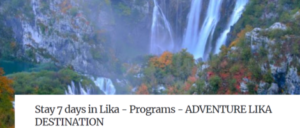Ameland exemplifies sustainable tourism by balancing its economic activities, natural landscape, and community well-being. The island’s sustainable efforts focus on conserving its unique ecosystems—dunes, beaches, and the UNESCO-protected Wadden Sea—while maintaining a high quality of life for locals. Environmental initiatives include regulated visitor numbers, waste reduction programmes, and eco-friendly accommodation options. Renewable energy projects support Ameland’s green agenda, reducing dependence on non-renewable sources. Visitors are encouraged to explore by bicycle or on foot, minimising carbon emissions. Through education and conservation activities, Ameland invites tourists to connect responsibly with its cherished natural and cultural heritage.
Ameland
Ameland: A harmonious blend of heritage, nature, and sustainable tourism
Why visit Ameland
Ameland, a unique Wadden Sea island, is an outstanding destination for nature and culture lovers seeking sustainable tourism. Visitors can explore untouched dunes, expansive beaches, and the UNESCO-protected Wadden Sea. The island’s traditional villages, featuring well-preserved 18th-century houses and churches, add a charming historical dimension. Locals prioritise conservation, carefully balancing tourism with environmental and cultural preservation. Whether walking through quaint streets, spotting wildlife in nature reserves, or enjoying the tranquillity of the sea, Ameland offers an inspiring escape into Dutch coastal life with a strong commitment to sustainability.
Destination’s sustainability performance
Culture & Local Life
Ameland’s culture is steeped in a blend of maritime heritage and village traditions that resonate through its communities. Islanders have a strong connection to the sea, reflected in their seafaring history, local folklore, and seasonal celebrations. Amelanders are proud stewards of their heritage and natural surroundings, embracing sustainable practices to maintain their way of life. Old churches, maritime museums, and traditional architecture give visitors insight into the island’s past, while locally sourced cuisine, crafts, and arts provide a modern-day connection to island life. Festivals and events further showcase Ameland’s resilient and welcoming spirit, bridging history with a sustainable future.
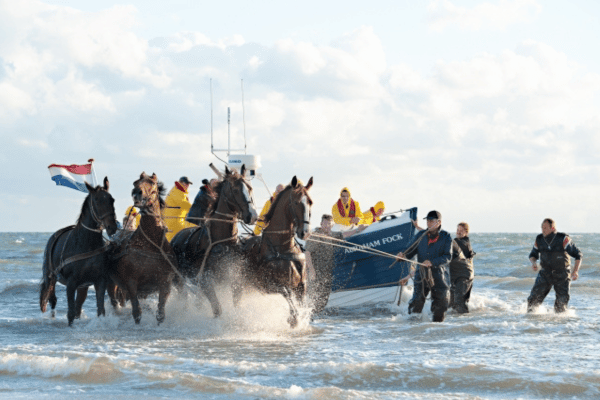
Sustainability
GOOD BUSINESSES
Discover accommodations, restaurants, shops and attractions that are commited to responsible development
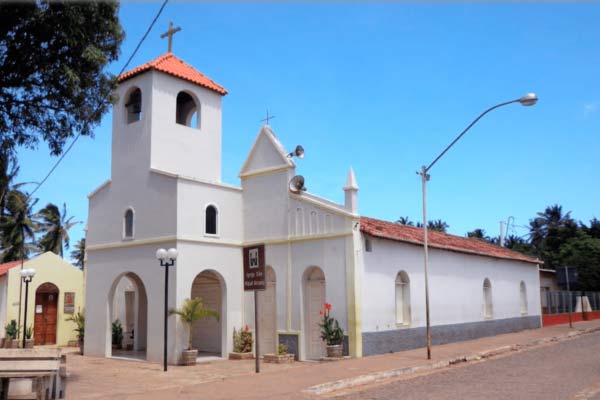
Historic and cultural heritage
In addition to the beaches, take the opportunity to visit the Casa de Taipa Museum and the Church of São Miguel do Arcanjo.
PROMO CODE:
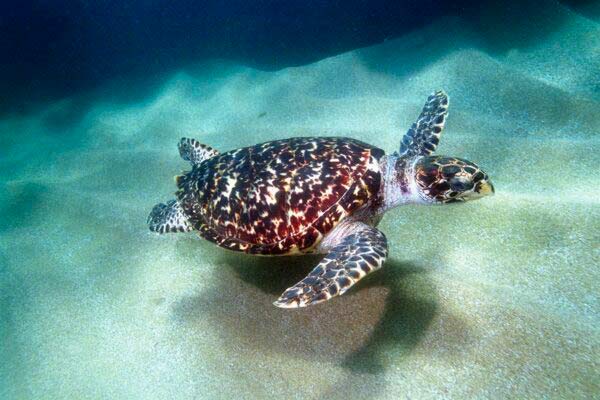
Historic and cultural heritage
In addition to the beaches, take the opportunity to visit the Casa de Taipa Museum and the Church of São Miguel do Arcanjo.
PROMO CODE:

Historic and cultural heritage
In addition to the beaches, take the opportunity to visit the Casa de Taipa Museum and the Church of São Miguel do Arcanjo.
PROMO CODE:
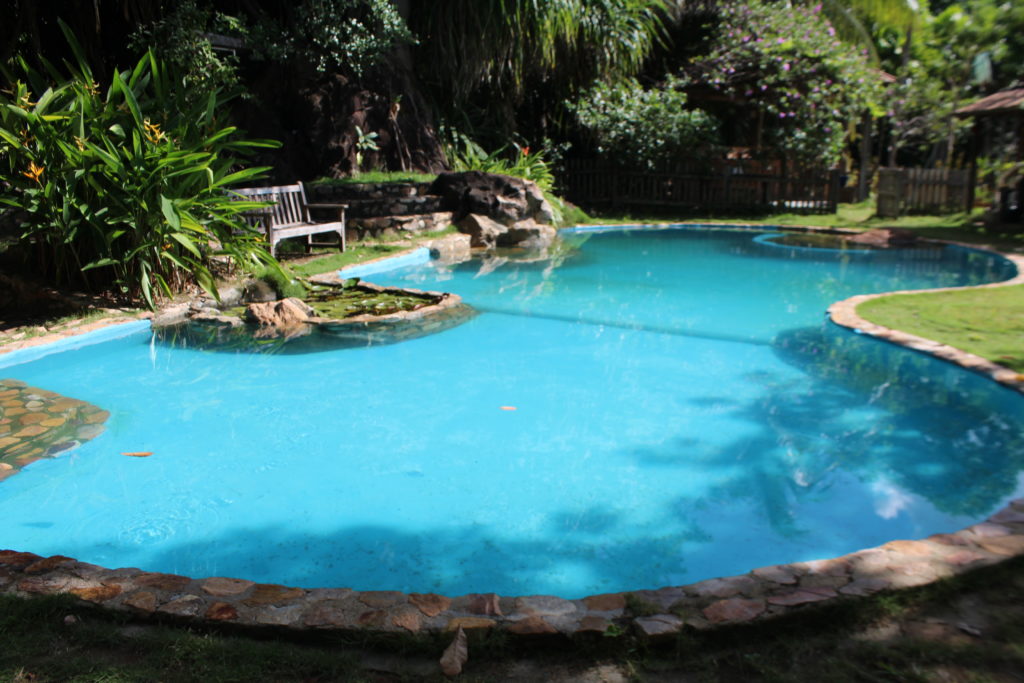
Historic and cultural heritage
In addition to the beaches, take the opportunity to visit the Casa de Taipa Museum and the Church of São Miguel do Arcanjo.
PROMO CODE:
Nature & Wildlife
Ameland is an outdoor enthusiast’s paradise, with a variety of landscapes from sandy beaches to rich dune systems and the Wadden Sea’s unique tidal flats. Nature reserves around the island protect diverse wildlife, including seals, migratory birds, and native plants. Activities such as hiking, cycling, birdwatching, and mudflat hiking (“wadlopen”) allow visitors to immerse themselves in the island’s natural beauty. The surrounding waters provide opportunities for sailing, windsurfing, and guided boat trips to observe seal colonies. As part of a UNESCO biosphere reserve, Ameland’s nature activities are designed to inspire appreciation for the delicate Wadden ecosystem.
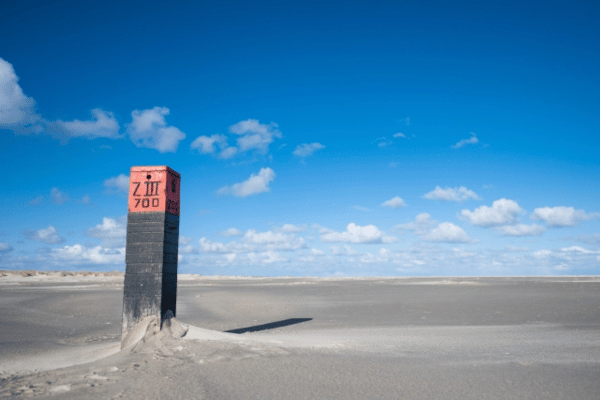
Getting there
Reaching Ameland is straightforward and enjoyable. A regular ferry service operates from Holwerd on the Dutch mainland, with the ferry crossing taking about 45 minutes. The ferry accommodates cars, but many visitors prefer to travel by bike to minimise environmental impact and enjoy the scenic island. There is a direct bus connection from Leeuwarden train station to Holwerd, making it convenient for travellers using public transport. For a unique experience, some choose to travel via small plane from mainland airports, landing directly on Ameland. Whatever the mode, getting to Ameland is part of the adventure.
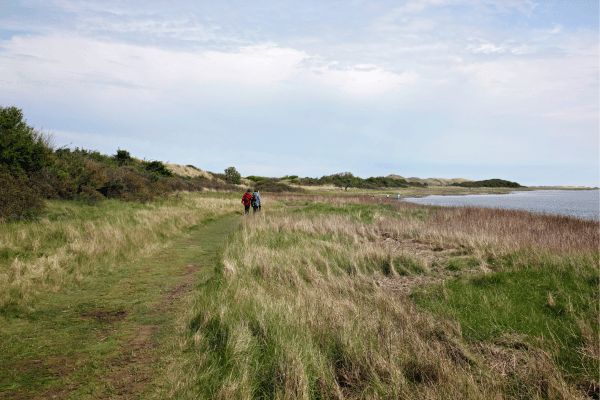
Getting around
Once on Ameland, cycling and walking are popular and environmentally friendly ways to explore the island’s scenic landscapes and charming villages. Well-marked cycling paths connect key sites, while pedestrian-friendly streets in towns make it easy to navigate on foot. Bike rentals are readily available, allowing visitors to reach beaches, dunes, and nature reserves at a relaxed pace. Public buses provide convenient access across the island, and eco-taxis are also available. For a slower, scenic journey, visitors can join horse-drawn carriage rides, reflecting Ameland’s traditional ways of getting around while exploring its picturesque surroundings.
Find out here about suggestions from the destination of 7-day trips to visit Lika Destination.
Sustainability Recognitions
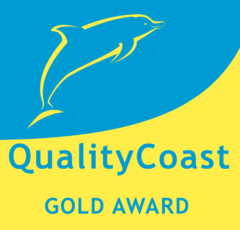
AWARDS
Ameland received a QualityCoast Gold Award for its efforts in sustainable development in 2024.

GOOD PRACTICE STORIES
Ameland was featured in the 2024 Green Destinations Top 100 Stories
Visit other destinations nearby
Get in touch
Support
We are a multicultural, creative and dedicated team working to promote sustainable tourism. Join us in our fight against the climate crisis, single-use plastics and over-tourism!

